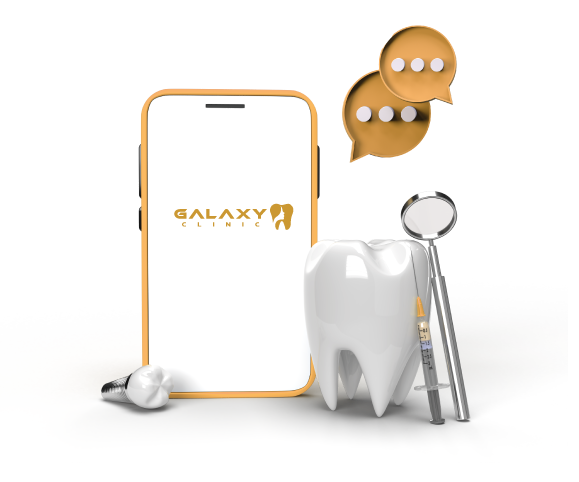There are so many causes of teeth sensitivity that we are going to refer to them in this article. But first we need to make you know the symptoms to determine either you get a sensitive tooth or not. If you experience a sudden, intense, and painful sensation in your teeth upon biting into ice cream, sip an iced drink, or drink a spoon of boiling soup, you probably have sensitive teeth.
Teeth Sensitivity

It is a reaction stimulated by extremely hot, cold, acidic or sweet beverages and foods. Also, cold air exposure, and even brushing or flossing your teeth, all of these are causes of teeth sensitivity.
Is it possible to treat or prevent tooth sensitivity?
Ensure that you maintain regular dental check-ups and follow any referrals to see your hygienist and keep away from the causes of teeth sensitivity. Adhere to the guidance provided by your dentist or hygienist for effective at-home dental care. If you suspect any issues such as cavities, cracked teeth, or changes in your gums, promptly schedule an appointment with your dentist as early intervention can prevent further deterioration.
Your dentist might suggest the use of fluoride gel, rinse, or varnish to gradually strengthen the protective layer of your teeth. To minimize the causes of teeth sensitivity, avoid consuming sugary, fizzy, or acidic foods and beverages. Instead of brushing your teeth in a side-to-side motion, opt for gentle circular motions. Transition to a softer toothbrush and replace it when signs of wear become evident. Consider using a desensitizing toothpaste, preferably one containing fluoride, although it’s important to consult your dentist for guidance, as excessive fluoride usage can be detrimental to your oral health.
Is tooth sensitivity indicative of an infection?
Not necessarily. On occasion, the causes of teeth sensitivity can be attributed to tooth erosion (gradual wear and tear) or gum recession. However, it may also signify the presence of a cracked or infected tooth. Pain associated with a tooth infection can vary from a persistent dull ache to an intense, throbbing sensation.
If you experience severe and persistent tooth sensitivity, it’s advisable to promptly contact a dentist for guidance and further assessment as well as minimizing the causes of teeth sensitivity.
Care and Cure
Is it possible for tooth sensitivity pain to resolve or diminish over time?
Certainly. In certain instances, tooth sensitivity can naturally subside, particularly if it results from a recent dental procedure like a filling or root canal. However, if you experience persistent and enduring tooth sensitivity, it is advisable to consult a dentist. It’s possible that you may have issues like worn enamel or exposed tooth roots, which may necessitate treatment to address the underlying problem.
What can be done to alleviate tooth sensitivity pain?
You need to manage the underlying causes of teeth sensitivity. If you experience persistent tooth sensitivity or discomfort, it’s crucial to schedule an appointment with your dentist. They will conduct an evaluation to rule out any serious conditions and recommend suitable treatment options.
To minimize the causes of teeth sensitivity resulting from normal wear and tear, consider the following measures:
1- Utilize desensitizing toothpaste: Various brands offer toothpaste formulated for sensitive teeth. With consistent use, you should observe a reduction in sensitivity. It may take some experimentation with different brands to find the one that works best for you Furthermore, the application of a thin layer of toothpaste to exposed tooth roots before going to bed can prove beneficial.. Ensure that the toothpaste contains fluoride.
2- Maintain proper oral hygiene: Continue adhering to correct brushing and flossing techniques to effectively clean all areas of your teeth and mouth.
3- Opt for a soft-bristled toothbrush: This choice will minimize toothbrush abrasion on the tooth surface and reduce irritation to your gums.
4- Be mindful of your diet: Frequent consumption of highly acidic foods can gradually erode tooth enamel and expose dentin. This can exacerbate sensitivity and trigger pain. Limit your intake of such foods.
5- Incorporate fluoridated dental products: Daily use of a fluoridated mouth rinse can help reduce sensitivity. Consult your dentist for recommendations on available home-use products.
6- Prevent teeth grinding: If you grind or clench your teeth, consider using a mouth guard at night to protect your teeth.
7- Regularly visit your dentist: Schedule routine professional exams, cleanings, and fluoride treatments to maintain your oral health.
If you continue to experience discomfort, discuss it with your dentist. There are dental procedures that may alleviate sensitivity, including:
- Using dental bonding to conceal and protect exposed root surfaces.
- Application of fluoride varnishes to the exposed root surface.
- Use of dentin sealers on the exposed root surface.
Your dentist can provide guidance on the most suitable approach for your specific situation.
References:
https://www.healthline.com/health/sensitive-teeth#Symptoms-of-sensitive-teeth
https://www.bupa.co.uk/dental/dental-care/symptoms/sensitive-teeth
https://my.clevelandclinic.org/health/symptoms/10954-teeth-sensitivity


